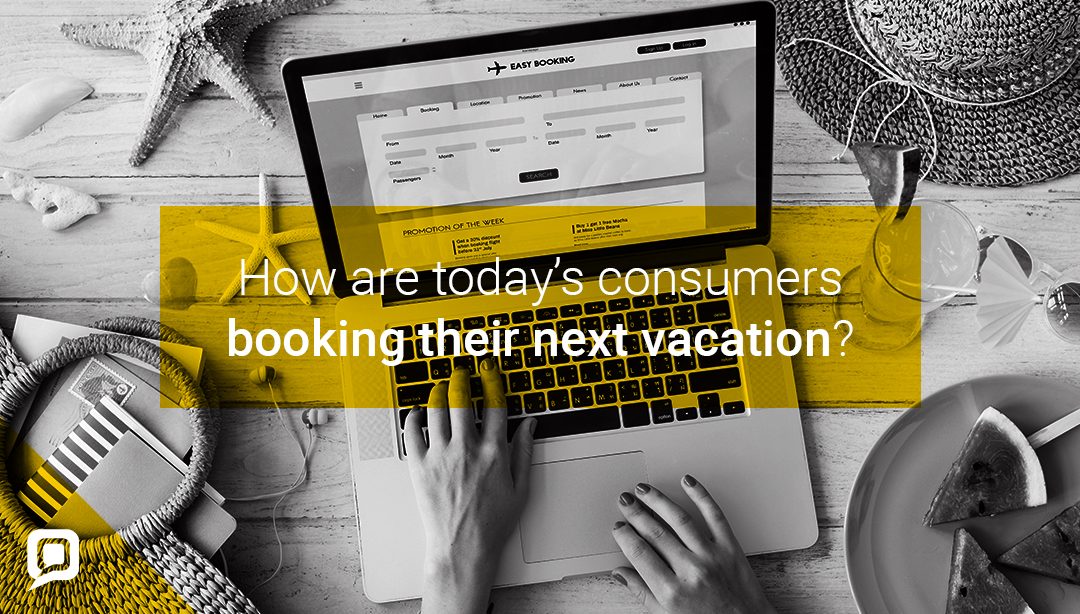A quarter of our disposable income will go towards our holidays, with the average British household taking two main trips per year and spending over £6,000.
With Brexit an ever-present concern, and more consumers deciding to stay closer to home for their 2019 vacations, you will need a winning strategy to attract their attention and business, starting with an insight into the customer booking experience.
A Nationwide spending report recently found that four in ten Brits will dip into their savings to afford their next trip away, whilst a quarter will borrow money – relying on credit cards (15%), personal loans (4%), and friends or family (3%).
Whilst many intend to stick to a budget, six in ten will end up overspending – typically by at least £250 – and will take around three months to pay it all off.
To position your hotel as the ultimate staycation destination, and reduce your OTA reliance, it’s important to develop the customer experience you provide.
Holiday spending habits in the UK:
- Book their vacations online 81%
- Overspend by at least £250 60%
- Dip into their savings 40%
- Will borrow from family or loans 25%
Hotel marketers have defined the travel booking journey as consisting of five phases, those being: dreaming, planning, booking, experiencing and sharing.
So, what are you doing at each of these stages to win over new and returning guests?
Dreaming
According to Think with Google, we experience travel micro-moments throughout the dreaming phase, or as they coin them, “I-want-to-get-away moments”.
On average, we’ll spend three hours a week daydreaming, with the most common fantasy being our next holiday – leading 17% to either miss or take a wrong turn when driving.
There is no fixed time for how long this period will last. For some, it may take only a matter of minutes from dreaming up their next holiday to actually booking it. Whilst for others, reaching that next step could take a matter of weeks or months.
However, it is a crucial stage in terms of marketing. Brand loyalty does not yet play a part in the customer journey – with 82% of leisure travellers yet to choose an accommodation provider – making it an opportune moment for you to put your business in front of your audience and demonstrate your value.
Planning
Now that they have a rough idea of what they want, your customers are ready to start researching their options. For British holidaymakers, that can take 30 hours spread out over five weeks.
In today’s market, the booking process happens across digital channels for 90% of consumers, providing you with a multitude of customer touch points to oversee and maximise on.
Whilst previously we’d have flicked through travel brochures, we’ll now scour the internet for 4.5 hours for more information and reviews before making a commitment.
The planning phase is crucial for determining value, with concerns about the quality of the facility (63%) or the food (47%). This is where your customer testimonials will prove useful, putting your prospects at ease.
Booking
Your customers are on the verge of booking, and whether that’s through your website, an online comparison site or over the phone, you need to provide a seamless service.
More cancellations occur from OTA bookings than from your website, mostly due to the utilisation of high-pressure tactics, with Trivago making headlines in 2018 for apparently “misleading customers with false advertisements”.
Half of all Google searches (46%) are location-specific, which means that if you have a strong online presence, you’ll improve your chances of driving traffic direct to your website – utlimately reducing your OTA reliance.
It’s also critical to get the “post-purchase experience” right, as getting it wrong will push 93% to buy from a competitor next time.
One of the biggest grievances with a brand’s post-purchase service is the speed of email delivery, with 81% frustrated after waiting longer than ten minutes, so be sure to provide a follow-up confirmation message to every customer.
Experiencing
How your guests interact with your brand will determine whether they’ll come back or not. With email marketing, you can encourage customer loyalty whilst influencing spend-per-head, with reports that pre-arrival campaigns – typically – see a 57% open rate.
When guests reach the experience stage of their travel booking journey, they’re often looking for ways to add value to their holiday, which you can provide in the form of your additional services, restaurant and spa packages.
Though they may initially be travelling for business, 49% of corporate guests will choose to extend their stay to enjoy some downtime, rising to 80% for millennials, who will plan their personal time around work.
Providing relevant information to the right target market will improve your chances of hitting the mark.
Approximately 50% of smartphone users will research what to do mid-stay, demonstrating that at every point of the customer journey, you need to be showcasing what the local area – and your hotel – has to offer.
Sharing
The final stage of the travel booking journey is one of the most important yet most commonly overlooked – sharing.
Your ability to generate direct bookings hinges on what your customers are saying about your brand online, making all the difference for 96% who look up reviews and 76% who focus on pictures from past guests.
Social media plays a crucial role attracting new customers – and helping your business to engage its recent visitors – with 42% believing it’s important to share their travel experiences and 40% picking destinations based on “Instagrammability”.
So, are you collecting and sharing your recent reviews? If the answer is no, you’re missing out on repeat business opportunities.

